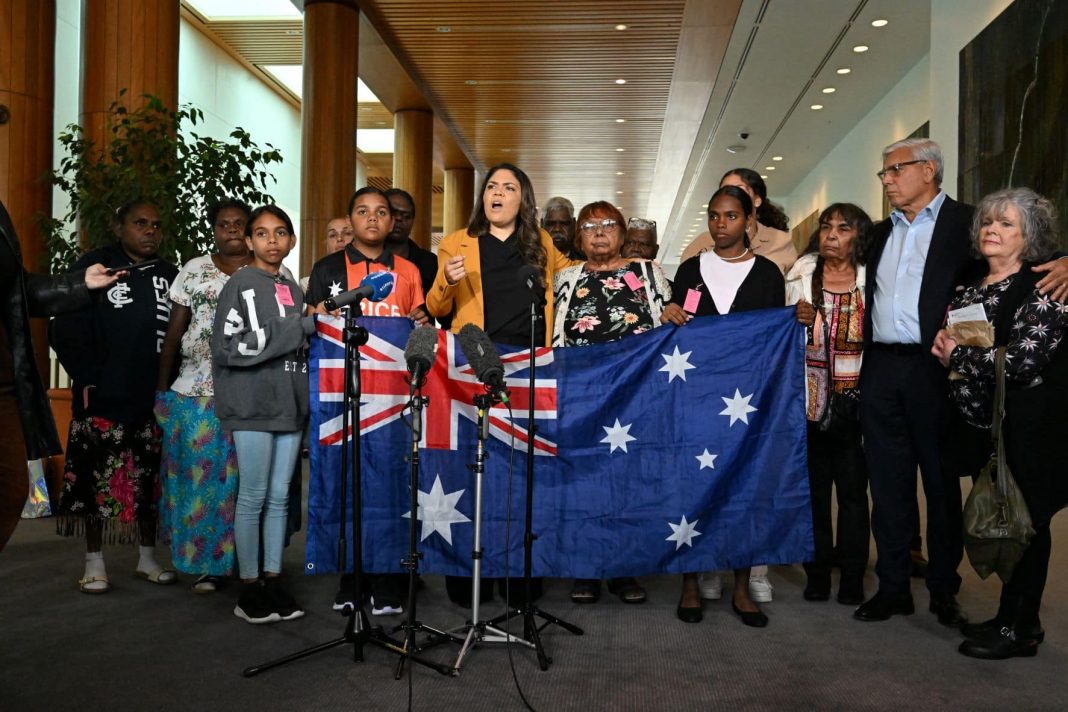A deal has been struck to move ahead with the legislation necessary to set up the referendum on the voice to parliament.
The opposition has agreed to support the bill in the Senate with amendments, including a physical pamphlet outlining both the “yes” and “no” cases and some funding changes.
There is also set to be official recognition of “yes” and “no” campaign organisations as well as strengthening opportunities for people to vote in remote communities.
The mobile polling period for remote communities will be extended to 19 days and a greater number of identification methods will be accepted to enrol or update enrolment in order to increase voter turnout.
There will be an advertisement blackout for three days before the referendum.
The disclosure threshold for donations to entities will be frozen at $15,200 instead of increasing with inflation.
But one coalition senator has already threatened to cross the floor if she did not agree with the bill while noting she had not seen the full details of the amendments.
Senator Jacinta Nampijinpa Price on Wednesday met with Indigenous community leaders, who were also against the voice to parliament.
The Indigenous senator said the voices of First Nations people had been trampled on “for years and years, if not decades”, and that the voice would just add another layer of bureaucracy.
“As Indigenous Australians with Indigenous heritage in this country, we don’t want to be divided on the lines of race,” she told reporters in Canberra while holding up an Australian flag.
Labor minister Don Farrell revealed a “no” campaign organisation had applied for tax deductible status and it would be treated in the same way as the application for the “yes” campaign organisation, which was granted.
But taxpayer money will only go towards a non-partisan information campaign as opposed to “yes” and “no” advertising.
“The decision to change our constitution is a significant national event,” he told the Senate.
“It’s therefore important that the government can fund a civic and education campaign in relation to the up and coming referendum on the voice.”
Liberal frontbencher Simon Birmingham told the Senate government funds should only be spent on enabling organisations to meet basic campaign requirements.
“If government funds are to be spent, they should be spent solely in relation to the conduct of the referendum, in relation to the turnout of the vote, in relation to the basic facts that apply to this referendum,” he said.
The Greens and crossbenchers want stronger truth in advertising laws to ensure only accurate information is sent out in the pamphlets.
But the government has indicated it won’t support on-the-day enrolments for the upcoming referendum.
“It seems somewhat ironic to have a vote about a voice but to restrict the voices who can vote about whether they’d like to have a voice,” Greens senator Larissa Waters said.
“People have busy lives. Often their ability to enrol is affected by all sorts of things, including shoddy internet in remote communities.”
Her Indigenous colleague Dorinda Cox said the amendments to how the referendum will be run would help pave the path to success, which would in turn open to door to truth-telling and a First Nations treaty.
“The only way we’re going to do that is actually secure a yes vote in the voice to parliament,” she said.
A second bill that sets out the wording of the constitutional change is expected to go to federal cabinet as early as Monday before being introduced to parliament late next week.
By Dominic Giannini in Canberra
Get local, national and world news, plus sport, entertainment, lifestyle, competitions and more delivered straight to your inbox with the Canberra Daily Daily Newsletter. Sign up here.



